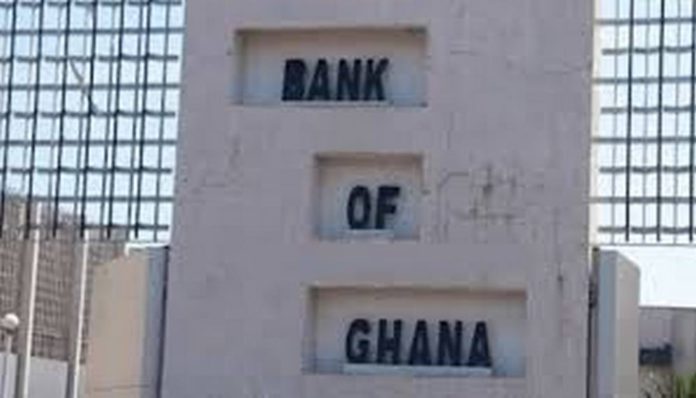The Bank of Ghana says it has put in place structures to ensure that it remains policy solvent and well able to deliver on its primary mandate.
This is coming after it reported ¢60.8 billion loss and a negative equity position of ¢ 55.1 billion.
In a FAQ, the Central Bank said structures and actions have been identified (including where needed, recapitalization by Government) over the next 5 years to return it to positive equity.
During that period, it is assessed that the Central Bank will continue to remain policy solvent and discharge its mandate effectively.
“The Bank of Ghana, as we all know, is not a typical profit-making institution and the extent of its capitalization doesn’t necessarily determine its policy solvency—meaning its ability to deliver on its mandate of price stability, and in addition, promote financial stability. That said, every institution should be concerned about negative equity and at a point in time, capitalization of central banks is critical, otherwise a sustained period of negative equity could undermine its credibility”.
“Based on the assessment of the external auditors, and the IMF, even though BoG would have a significant negative equity based on the huge impairment from 2022, structures are in place to ensure that the BoG remains policy solvent and well able to deliver on its primary mandate”, it explained.
On whether a negative equity affect positive policy solvency, the Bank of Ghana said a central bank policy solvency is the ongoing ability to fund and implement operations in line with the policy aims for which it has independent responsibility without recourse to the government.
Therefore, policy solvency requires sufficient realized revenues to cover costs and to build longer-term capital reserves allowing for independent and appropriate policy decisions.
It pointed out that the inability to cover costs and build sufficient buffers over the long term may require capital injection from the government which can undermine its independence and credibility of monetary policy and also affect public confidence in the central bank’s operations.
Therefore, although the financial position of the central bank has no immediate impact on its ability to pursue the policies it deems appropriate, its equity and its earning capacity should be high enough in the long-run to ensure that it is sufficiently financially independent of the government, it added.

